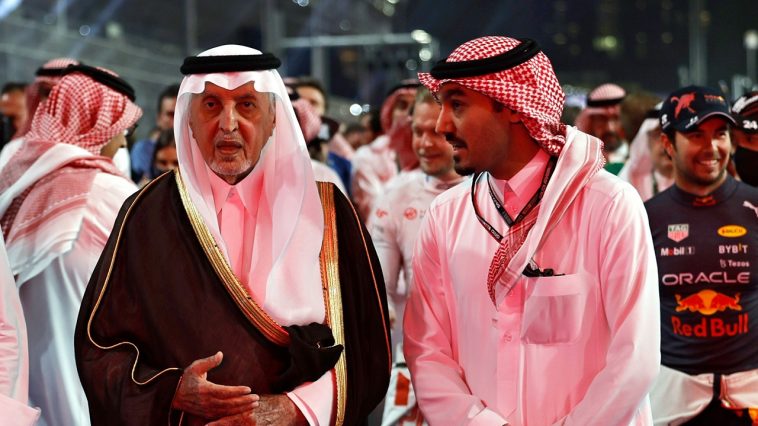We’re just 10 weeks away from the exciting 2023 college football season, with players due to arrive in six weeks and conference summer meetings in July. You might wonder why write an article about college football when nothing major is happening?
The answer is simple: what’s happening in pro sports across the globe is a sign of what is to come in college football. The warnings are clear. The line between pro and amateur sport is blurring, and the threat to college athletics is greater now than ever before.
Take the Professional Golfers Association (PGA) Tour, for instance. LIV Golf – a part of Saudi Arabia’s Public Investment Fund (PIF), worth $600 billion – employs spokesperson Greg Norman, who is paid $100 million by LIV, to recruit the top golfers and pay them tens of millions just for participating and even more if they win.
But at what cost? Women in Saudi Arabia face discrimination, human rights violations are common, and the country has even been linked to the assassination of journalist Jamal Khashoggi in Turkey. And on 9/11, 15 of the hijackers were from Saudi Arabia – the same country that the PGA Tour is doing business with. What are we thinking?
The PGA Tour’s commissioner, Jay Monahan, initially stood up to the pressure to accept the “blood money” of LIV Golf, which was simply seeking legitimacy and influence.
However, the merger went through, calling into question the Tour’s legitimacy and American way of life, and leading to investigations by Congress and the Department of Justice.
If soccer is the most popular sport worldwide, then Saudi Arabia is proving to be one of the biggest contenders in that area, too.
They’ve been buying teams in Europe, immediately transforming them into winners (like Newcastle), and offering astronomical salaries to top players like Cristiano Ronaldo and Karim Benzema. Even Lionel Messi was offered a contract worth $1.5 billion by Saudi Arabia – thankfully he chose Miami FC for $200 million instead.
But all this money splashing around has its consequences. If Saudi Arabia decided to create a professional basketball league, for example, how could any existing league compete with a salary cap ten times that of the NBA’s?
This is not so much a political issue as it is a question of whether or not big money undermines the competitive spirit of sport. It turns out that our beloved college football – along with college basketball – is particularly susceptible to the lure of large sums of money.
Facebook, Twitter, Google, and foreign companies could all compensate the star players with resources and assets to advance their interests in exchange for a relationship with the athlete. Nike, Adidas, FOX, ESPN, are already benefitting from this practice by sponsoring players, but it is still not considered an official threat.
The lack of a collective bargaining agreement and limitations on third-party compensations under NIL make college football the most vulnerable and unable to withstand the lure of foreign powers who can offer large payouts. Some players are already earning millions of dollars under NIL.
What if Saudi Arabia uses its unlimited resources to pay these athletes over $10 million each year? It could become a reality if we don’t act now.
So on Wednesday this week, an SEC contingent headed to Washington to meet with Congress members. The likes of Alabama Coach Nick Saban were there to discuss the need to regulate compensation under NIL.
While hopes are high, we aren’t holding our breath and expecting a sudden change anytime soon. It’s unlikely the NCAA will do anything on this front either. There is only one feasible solution, and that is to unionize the players and begin collective bargaining to address NIL compensation and minimize the impact outside influences can have.
A salary cap – whether hard or soft – is the most realistic solution to restore competitive balance in a sport where there is currently none. It is time we stopped being naive and calling college football players “amateurs” when they are, in fact, professionals.
The clock is ticking, and we have only a small window in which to make changes before the exploitation of young, impressionable men becomes a reality.
We need to understand that resources, assets, support, and assets are all code words for money in the sports industry. Domestic and foreign companies will use their capital and resources to influence college players and establish agendas to manipulate these young men. We’re living in a truly dangerous world.



